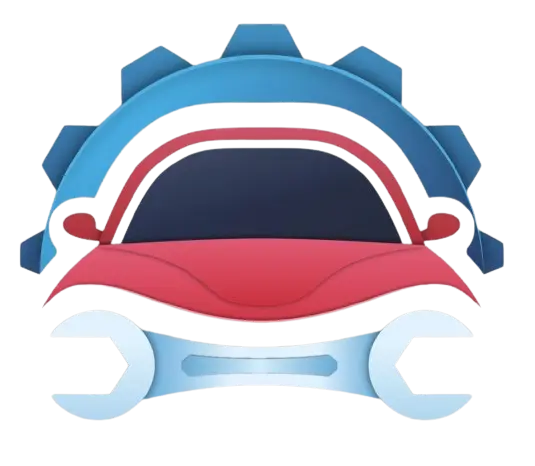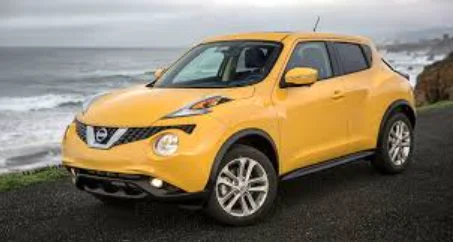Hitting the road in your Nissan Juke? Proper tyre pressure is crucial for optimal performance, safety, and even saving you money. But navigating the world of PSI, kPa, and tyre placards can be confusing.
Worry not, Juke fans! This comprehensive guide will get you up to speed on everything you need to know about keeping your tyres pumped and your drives smooth.
Finding Your Correct Tyre Pressure
First things first, ditch the guesswork. The recommended tyre pressure for your Nissan Juke depends on two key factors: model year and tyre size. Don’t fret, it’s easy to find the right numbers.
Table
| Engine | Tyre size | Front pressure | Rear pressure | Front loaded pressure | Rear loaded pressure |
| 1.2 | 205 60 R16 92H | 33 | 30 | 33 | 30 |
| 1.2 | 215 55 R17 94V | 33 | 30 | 33 | 30 |
| 1.2 | 225 45 R18 91W | 33 | 30 | 33 | 30 |
| 1.6 DIG-T | 215 55 R17 94V | 33 | 30 | 33 | 30 |
- Look for the tyre placard: This handy sticker is usually located inside the driver’s door jamb or somewhere in the trunk. It displays the recommended tyre pressure for both front and rear tyres, with and without a load.
- Check your owner’s manual: This trusty companion also holds the key to correct tyre pressure. Flip to the tyre section and find the chart specific to your Juke’s model year and tyre size.

Recommended PSI, kPa, and Bar
Now, let’s translate those cryptic codes! Generally, most Nissan Jukes recommend a tyre pressure between 30 and 33 psi (206 kPa – 227 kPa) for the front tyres and between 30 and 32 psi (206 kPa – 221 kPa) for the rear tyres.
Remember, these are just baselines, so always refer to your specific placard or manual for the precise numbers.
Why Proper Pressure Matters
Maintaining the correct tyre pressure isn’t just about following instructions. It impacts your Juke in several ways:
- Safety: Properly inflated tyres have better grip and handling, reducing the risk of accidents. Underinflated tyres are more prone to blowouts and rollovers.
- Fuel Efficiency: Overinflated tyres can decrease fuel economy, while underinflated tyres increase rolling resistance, sucking more fuel from your tank.
- Tyre Wear: Correct pressure ensures even wear and tear, extending the life of your tyres. Underinflated tyres wear unevenly, requiring premature replacements.

Monitoring and Maintaining Your Tyre Pressure
Checking your tyre pressure regularly is key. Aim to do it at least once a month, and even more often during extreme weather conditions or long journeys. Here’s what you need:
- A reliable tyre pressure gauge: Digital gauges are easy to use and accurate.
- Spare valve caps: Replace any lost caps to prevent air leaks.
Top Tips for Juke Drivers
- Don’t forget the spare: Check and adjust the pressure in your spare tyre too.
- Consider cold inflation: Inflating tyres when they’re cold provides the most accurate reading.
- Account for load: Increase tyre pressure slightly if you’re carrying a heavy load or passengers.
- Beware of the TPMS light: If your Juke’s Tyre Pressure Monitoring System (TPMS) light comes on, get your tyres checked immediately.
Conclusion
By following these tips and keeping your Nissan Juke’s tyres at the optimal pressure, you’ll enjoy a safer, smoother, and more fuel-efficient ride. So, hit the road with confidence, Juke fans! You’re now equipped with the knowledge to keep your tyres happy and your adventures rolling.
FAQs
- Q: What happens if my tyre pressure is too high or too low?
- Overinflated tyres can wear unevenly and compromise road handling, while underinflated tyres increase the risk of blowouts and decrease fuel efficiency.
- Q: How often should I check my tyre pressure?
- Aim to check it at least once a month, and more often during extreme weather or long trips.
- Q: Can I use a standard inflator to fill my tyres?
- Yes, but a dedicated tyre pressure gauge is essential for accurate measurements.
- Q: What do I do if my TPMS light comes on?
- Get your tyres checked by a qualified technician immediately. A faulty sensor or low pressure could be the culprit.
- Q: Where can I find more information about my specific Juke model?
- Refer to your owner’s manual or consult your local Nissan dealership.

